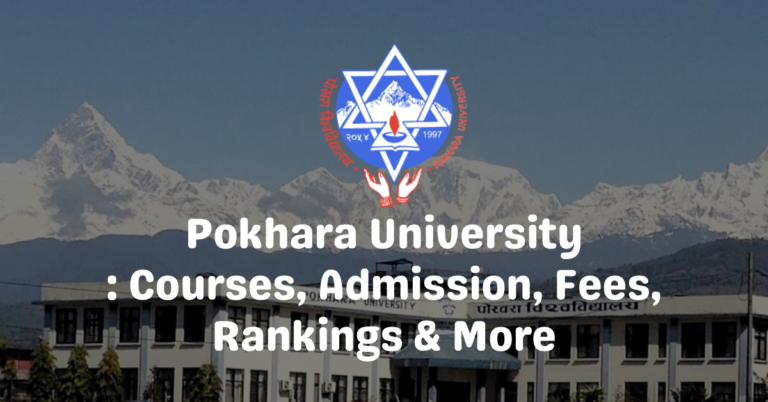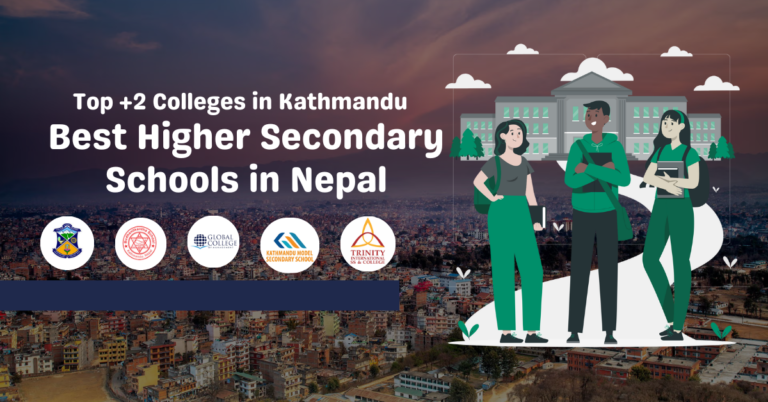Introduction to BSc Physics
What is BSc Physics?


BSc Physics, short for Bachelor of Science in Physics, is a 4-year undergraduate program that dives deep into the fundamental principles of matter, energy, motion, and space. It explores how the universe works, from the tiniest particles to the vastness of galaxies. In Nepal, this course is offered under the semester system and is regulated mainly by national universities like Tribhuvan University, Pokhara University, and others. It combines both theoretical and experimental knowledge, building a strong foundation for scientific thinking, research, and technology development.
In today’s world, Physics isn’t just about blackboards and equations. It’s the backbone of innovations in energy, medical imaging, engineering, data science, and even finance. From the sensors in smartphones to satellites orbiting Earth, Physics plays a central role. A BSc Physics degree equips students not only with scientific knowledge but also critical thinking and problem-solving skills that are in high demand globally.
Nepal has steadily been developing its STEM education, and BSc Physics is at the forefront. With growing investment in science and technology and an increasing number of colleges offering this degree, students now have broader access and better resources to pursue a career in physics. The course duration is 4 years, typically divided into 8 semesters, covering subjects such as Classical Mechanics, Electrodynamics, Thermodynamics, Quantum Mechanics, and Modern Physics, along with hands-on laboratory work.
Why Study BSc Physics?
You might wonder: why pursue BSc Physics in Nepal when there are universities abroad with more advanced labs? Fair question. But here’s the thing—Nepal is catching up. Today, Nepali universities are offering competitive curricula that are aligned with global standards. Not only is it more affordable, but it also allows students to study in their own language and culture while staying close to their family and network.
Nepal’s growing need for scientific professionals, researchers, and educators has also created more career opportunities within the country. Whether you aim to become a physicist, enter academia, join tech startups, or pursue civil services, BSc Physics offers a wide entry point. Plus, students with high academic performance can receive scholarships and grants from both government and private institutions.
Moreover, there’s an increasing demand for physics graduates in sectors like renewable energy, space science, meteorology, environmental science, and data analytics. Physics also opens the door to teaching at secondary and higher education levels. Studying in Nepal provides a strong academic grounding and positions students well for both local and international career paths.
Eligibility Criteria and Admission Process
Who Can Apply for BSc Physics?
To enroll in BSc Physics in Nepal, students must have completed their +2 or equivalent (Science Stream) from a recognized board with Physics, Chemistry, and Mathematics as core subjects. A minimum GPA is required—generally 2.0 or higher, depending on the university. However, just meeting the GPA isn’t enough. Most top-tier universities like TU and Pokhara also conduct entrance exams to assess a student’s aptitude in Physics, Math, and General Science.
Let’s break it down:
- Educational Qualification: 10+2 Science (Physics and Math mandatory)
- Minimum GPA: Usually 2.0+ (some require at least C+ in Physics and Math)
- Entrance Exam: Required by most top universities
- Age Limit: Usually under 25 years for government institutions
Private colleges under affiliations often have slightly flexible criteria but still emphasize a strong science background. Many institutions provide quota-based admissions for marginalized and disadvantaged groups, promoting inclusive education.
Admission Process for BSc Physics
The admission process for BSc Physics in Nepal usually kicks off after the publication of +2 results. Here’s how the general process unfolds:
- Application Submission: Students fill out online/offline forms released by respective universities or colleges.
- Entrance Exam: Universities like Tribhuvan and Pokhara conduct entrance exams testing students in Physics, Chemistry, and Mathematics.
- Merit List Publication: Based on entrance scores and +2 results.
- Admission Offer: Selected students are notified via college websites or SMS.
- Enrollment: Final step includes document verification and fee payment.
Different universities may follow slightly different schedules and formats, but the essence remains the same—students must perform well academically and clear the entrance exam. Admission is typically competitive, especially in reputed colleges like Amrit Science Campus (ASCOL), St. Xavier’s, and Prithvi Narayan Campus.
Top Universities and Colleges Offering BSc Physics
Tribhuvan University (TU)
Tribhuvan University is Nepal’s oldest and largest university. It remains the most preferred choice for BSc Physics students due to its legacy, experienced faculty, and nationwide reach. The Institute of Science and Technology (IOST) under TU governs the BSc Physics curriculum.
Top TU-Affiliated Colleges for BSc Physics:
- Amrit Science Campus (ASCOL), Kathmandu
- Tri-Chandra College, Kathmandu
- Patan Multiple Campus, Lalitpur
- Prithvi Narayan Campus, Pokhara
- Mahendra Morang Adarsha Campus, Biratnagar
These colleges offer well-equipped labs, research exposure, and experienced professors. TU’s semester system ensures regular internal assessment, assignments, and laboratory reports, keeping students engaged.
TU’s BSc Physics program includes both compulsory physics and mathematics courses and opens opportunities for students to later pursue MSc programs within the same university system or abroad.
Pokhara University
Pokhara University has emerged as a modern alternative with updated curricula, industry-oriented teaching, and growing infrastructure. It offers BSc in Physics through its School of Engineering and School of Sciences.
Features:
- Credit-based semester system (international standard)
- Continuous assessment through quizzes, assignments, and presentations
- Collaboration with industries and research centers
Although TU dominates in numbers, Pokhara University’s modern pedagogy, cleaner administration, and student-focused teaching have attracted many young minds in recent years.
Purbanchal University and Other Institutions
Purbanchal University also offers BSc Physics through select affiliated colleges. While still growing in popularity, it provides a more accessible route for students from Eastern Nepal.
Other noteworthy colleges include:
- Kathmandu University (though it mainly focuses on engineering and applied sciences)
- Siddhanath Science Campus, Mahendranagar
- Mechi Multiple Campus, Jhapa
These institutions are playing a critical role in decentralizing quality science education.
BSc Physics Curriculum and Course Structure
Year-wise Course Breakdown
The BSc Physics program in Nepal follows a semester system and is typically spread across 8 semesters (4 years). Each academic year consists of two semesters, with a balanced mix of theory, practical, and elective courses. The curriculum is designed to gradually progress from fundamental concepts to advanced topics.
Here’s a general breakdown:
- 1st Year: Basic concepts in Mechanics, Calculus, Algebra, and Chemistry. The foundation of mathematics and physics is laid out.
- 2nd Year: Thermodynamics, Optics, Waves, Differential Equations, and Electromagnetism.
- 3rd Year: Introduction to Quantum Physics, Solid State Physics, Statistical Mechanics, and Electronics.
- 4th Year: Advanced Quantum Mechanics, Nuclear Physics, Classical Mechanics, and final-year project or thesis work.
Apart from the core physics subjects, students also study Mathematics, Computer Science (in some universities), English Communication, and Environment Science. Each semester usually carries 12–18 credit hours. The course is intensive and involves weekly practical sessions to strengthen theoretical learning.
This structure helps students build not just academic knowledge but also laboratory precision, analytical thinking, and teamwork through project-based learning.
Core Subjects and Electives
Core subjects form the heart of the program. These are mandatory and ensure a uniform knowledge base across all universities offering BSc Physics.
Core Subjects:
- Mechanics
- Thermodynamics & Statistical Mechanics
- Electromagnetic Theory
- Quantum Mechanics
- Solid State Physics
- Mathematical Physics
- Optics & Waves
- Electronics
- Classical Mechanics
- Nuclear Physics
Each subject is paired with lab work wherever applicable, ensuring students get to apply what they learn.
Electives:
In the final year, students often choose electives depending on their interest and the college’s offering. These may include:
- Astrophysics
- Computational Physics
- Environmental Physics
- Nanotechnology
- Medical Physics
Electives allow students to specialize or prepare for higher studies in a specific domain. For example, someone interested in research may choose Computational or Theoretical Physics, while someone aiming for industry might go for Electronics or Environmental Physics.
Practical and Lab Work
Physics without experiments is like a song without melody. Lab work is the soul of BSc Physics. Every semester includes lab sessions where students perform practical experiments to verify theoretical principles.
Key Lab Areas:
- General Physics Lab (Mechanics, Optics, Thermodynamics)
- Electronics Lab (Circuit design, Oscilloscopes, Diodes, Transistors)
- Modern Physics Lab (Photoelectric Effect, Radioactivity)
- Computer Lab (Simulations, Data Analysis)
Students must maintain lab journals, submit regular reports, and often give viva-voce to test their understanding. This hands-on experience is vital not only for academic growth but also for employability.
Some universities also mandate a final-year project, where students design an experiment, analyze data, and write a dissertation. This fosters research aptitude and scientific curiosity.
Fee Structure and Scholarships
Average Tuition Fees
Tuition fees for BSc Physics in Nepal vary widely based on the institution. Government colleges offer the most affordable options, while private institutions and universities charge higher.
Here’s a general overview:
| Type of College | Annual Fee Range (NPR) | Total 4-Year Cost (Approx.) |
|---|---|---|
| Government Colleges | NPR 8,000 – 20,000 | NPR 32,000 – 80,000 |
| Private Colleges (TU) | NPR 30,000 – 70,000 | NPR 120,000 – 280,000 |
| Pokhara University | NPR 60,000 – 120,000 | NPR 240,000 – 480,000 |
Note: Additional costs include lab materials, exam fees, project expenses, and textbooks.
Although government colleges are cheaper, they are highly competitive. Students from low-income backgrounds prefer institutions like ASCOL, Tri-Chandra, and Mahendra Morang due to affordability and quality education.
Scholarship Opportunities
Several scholarship options exist for meritorious and underprivileged students:
1. University Scholarships:
- TU offers full/partial scholarships to top entrance performers.
- Pokhara University provides merit-based and need-based scholarships.
2. Government and Local Body Schemes:
- Reserved quotas for marginalized groups, Dalits, Janajatis, and remote region students.
- Rural municipality grants and educational aid programs.
3. Private Organizations:
- Scholarships from NGOs, INGOs, and private donors.
- Science promotion organizations like RECAST and NASO sometimes offer sponsorships.
4. Women in Science Scholarships:
- Encouraging female participation in STEM, several colleges run girl-focused funding programs.
Students are advised to apply for multiple scholarships early and maintain consistent academic performance to continue receiving support.
Career Scope After BSc Physics
Government Jobs for BSc Physics Graduates
A BSc in Physics opens a diverse range of opportunities in the public sector. In Nepal, science graduates are eligible for a variety of technical and administrative roles.
Top Government Career Options:
- Civil Services (Lok Sewa): Apply for Scientific Officer, Education Officer, or Technical Assistant roles.
- Meteorological Department: Involved in weather forecasting, climate studies.
- Nepal Electricity Authority (NEA): Work on energy distribution, power systems, and instrumentation.
- Department of Hydrology and Meteorology (DHM): Data collection, research, and environmental monitoring.
- Research Institutions: NASO, RECAST, and NAST employ physics graduates for research projects.
Being a science graduate gives an edge in logic, reasoning, and problem-solving—skills heavily tested in competitive exams like PSC (Lok Sewa Aayog). Plus, it allows you to contribute meaningfully to Nepal’s scientific and technological progress.
Private Sector & International Opportunities
Physics isn’t just for professors and researchers. Its practical nature makes it a valuable degree in the private and international job markets.
Private Sector Roles:
- Data Analyst or Statistician
- IT and Software (with additional training)
- Quality Control & Testing in Manufacturing
- Teaching at Private Institutions
- Electronics and Instrumentation Jobs
International Opportunities:
Graduates often pursue internships or MSc programs abroad, opening doors to:
- Space agencies (after higher studies)
- Global tech firms (like IBM, Intel)
- International research centers (CERN, JAXA)
- Universities offering PhD programs in Europe, US, Japan
BSc Physics graduates also move into interdisciplinary roles in finance, data science, and AI with further studies or certification. That’s the beauty of physics—it trains your brain to solve problems across fields.
Higher Studies Options
MSc Physics
If you’re academically inclined, continuing to MSc is a logical next step. TU, Pokhara University, and Kathmandu University offer MSc programs in Physics, and each has its own entrance process.
Specializations may include:
- Astrophysics
- Material Science
- Theoretical Physics
- Nuclear Physics
Post-MSc, many students opt for teaching, research, or begin preparation for PhD admissions either in Nepal or abroad.
Abroad Studies after BSc Physics
A large number of Nepali students aim for international degrees after completing BSc Physics. Countries like the USA, UK, Germany, Canada, and Japan are top destinations for MSc and PhD.
Top Foreign Scholarships:
- Erasmus Mundus (EU)
- DAAD (Germany)
- MEXT (Japan)
- Fulbright (USA)
- Chevening (UK)
International programs offer advanced labs, exposure to global research, and higher pay scales. However, a strong academic track, IELTS/TOEFL scores, and a solid Statement of Purpose (SOP) are necessary.
Challenges and Opportunities in the Field
Academic Rigor
Let’s not sugarcoat it—BSc Physics is not for the faint-hearted. The program is rigorous, math-heavy, and conceptually deep. Students must deal with abstract concepts, complex formulas, and time-consuming lab reports. Unlike many other undergraduate programs, BSc Physics demands consistent effort throughout all semesters.
One of the biggest academic challenges is the transition from +2 level to university-level Physics. Many students struggle with topics like Quantum Mechanics, Statistical Thermodynamics, or Electromagnetic Theory due to the lack of strong foundational teaching in earlier education.
Additionally, because most textbooks and references are in English, students who studied in Nepali medium schools often face language barriers. Keeping up with international-level content in a second language requires extra dedication.
However, this challenge is what makes physics such a rewarding subject. Once you start grasping the concepts, it feels like unlocking the code behind the universe. You begin to see how everything—from falling apples to galaxies—follows laws that you now understand.
Research Facilities and Labs
One of the major concerns among students is the limited research infrastructure in Nepal. While core government colleges like Tri-Chandra, ASCOL, and KU offer decent lab facilities, they often lack cutting-edge equipment for advanced physics research.
That said, Nepal is making progress. Institutions like the Nepal Academy of Science and Technology (NAST), RECAST, and NASO are taking initiatives to boost physics research. International collaborations, online research opportunities, and thesis projects are becoming more common.
There’s also a rise in online platforms offering remote research collaborations. Students who show initiative can take part in international projects, attend webinars, and even publish papers before completing their degree.
Student Life and Campus Experience
Lab and Practical Exposure
Student life in a BSc Physics program is an exciting blend of intense academics, lab curiosity, and peer discussions. Lab sessions are often the most loved part of the week—where theoretical knowledge turns into hands-on reality.
What’s it like?
- Building circuits from scratch
- Experimenting with lasers and prisms
- Watching radioactive decay in real-time
- Debugging instruments with a team
These experiences are unforgettable. They don’t just sharpen your technical skills—they teach teamwork, patience, and resilience.
Moreover, several colleges conduct inter-college physics exhibitions, quiz competitions, and seminars. These platforms give students a chance to shine outside the classroom and network with like-minded peers.
Extracurricular and Physics Clubs
Most science campuses have active Physics Clubs run by students. These clubs conduct:
- Workshops on programming for physicists
- Astronomy nights with telescopes
- Science debates and public speaking events
- Industrial tours and science museum visits
Such extracurriculars play a vital role in personality development and academic enthusiasm. They offer leadership opportunities and help in building communication skills—something many physics grads lack.
Life outside the classroom also includes hostel memories, cultural events, and student politics. The experience is holistic and shapes students for both personal and professional journeys.
Future of Physics
Development of Research
Physics no longer confined to classrooms. The government and academic institutions are realizing the importance of research and innovation. Recently, there has been a surge in projects related to:
- Renewable energy (solar, wind, hydro)
- Earthquake-resistant building materials
- Space observation and satellite projects
- Environmental physics and pollution control
While funding and infrastructure are still limited, the potential is massive. Organizations like NASO and NAST are partnering with universities to support student-led research. Undergraduate students are now encouraged to submit papers and participate in national-level research competitions.
Additionally, Nepali scientists abroad are collaborating with domestic researchers to build stronger networks. The future looks promising—especially for students who are passionate, proactive, and persistent.
Industry Demand and Innovations
Globally, physics graduates are highly sought after in tech, healthcare, energy, and education. In Nepal, the demand is rising in fields such as:
- Solar energy companies
- Engineering consultancies
- Meteorological services
- Data analytics firms
- Teaching institutions
Nepal’s digital transformation and move towards sustainable development has created space for scientifically trained professionals. Physics students who pair their degree with coding, data science, or engineering knowledge become hot property in the job market.
More importantly, the scope isn’t limited to jobs. Physics graduates can innovate, launch startups in tech or renewable energy, or become freelance researchers and educators online. The sky is truly the limit.
Alumni Success Stories
Notable Alumni from TU and Other Universities
Over the years, many physics graduates from Nepal have gone on to make significant contributions nationally and globally. Some have pursued their PhDs abroad, working in institutions like NASA, CERN, and top European universities.
Others have become:
- Professors in reputed international universities
- Scientists in space and nuclear research
- Founders of science education platforms in Nepal
- Advisors in government think tanks for science and technology
These alumni serve as inspiration and proof that BSc Physics from Nepal can take you places.
Career Journeys Post BSc Physics
Let’s look at a few common trajectories:
- Academia Route: BSc → MSc → PhD → Professor/Researcher
- Teaching Career: BSc + B.Ed. → Secondary/High School Teacher → Lecturer
- Public Sector: BSc → Lok Sewa Preparation → Technical/Gazetted Officer
- Abroad Studies: BSc → IELTS/TOEFL → MSc Abroad → Global Career
- Industry Route: BSc + Tech Skill (Data, Programming) → Analyst/Engineer
These examples show that your journey doesn’t have to follow one path. With the right mix of passion and planning, you can shape a career that’s both impactful and rewarding.
Tips for Success in BSc Physics
Study Strategies
Success in BSc Physics isn’t just about raw intelligence—it’s about strategy. Physics is a subject where concepts build on each other, so staying consistent is key. Missing a topic today might haunt you for semesters.
Here’s how to keep up:
- Daily Revision: Don’t let concepts pile up. Review your notes and textbook every day—even 30 minutes helps.
- Use Visual Learning: Diagrams, animations, and YouTube videos help understand abstract concepts like wave-particle duality or electric fields.
- Practice, Practice, Practice: Solve numerical problems regularly. Physics is 30% understanding, 70% practice.
- Group Studies: Discussing with friends often uncovers perspectives you hadn’t considered. Plus, it makes studying less boring.
- Ask Questions: Never hesitate to clarify doubts in class or with seniors. One small misconception can lead to bigger misunderstandings.
Using resources like Khan Academy, MIT OpenCourseWare, and Nepali physics channels also strengthens your knowledge. Many international sites provide free mock tests and simulations.
Time Management Tips
One of the biggest mistakes students make is cramming. Physics cannot be crammed. It demands a planned and measured approach to studying.
Here’s how you can manage time better:
- Create a Weekly Plan: Allocate fixed hours for theory, problem-solving, and lab preparation.
- Use the Pomodoro Technique: Study for 25 minutes, take a 5-minute break. After 4 sessions, take a 20-minute break. It keeps your brain fresh.
- Avoid Multitasking: Don’t watch TV or scroll social media while studying. Focused learning saves time.
- Keep Sundays Light: Use this day to review the week’s topics or relax to avoid burnout.
- Prepare Ahead for Labs: Reading the lab manual before class boosts your performance and saves lab time.
Discipline is more important than motivation. Form habits early in your first semester and stick with them. The payoff? Better grades, less stress, and more time for fun.
How to Choose the Right College for BSc Physics
Factors to Consider
Not all colleges offer the same quality of education, even if they follow the same university curriculum. Choosing the right one can set the tone for your entire career.
Here’s what to evaluate:
- Faculty Quality: Research the experience, publications, and teaching style of professors.
- Laboratory Facilities: Visit the campus if possible and check the lab conditions.
- Alumni Success: Strong alumni networks usually reflect the college’s academic culture.
- Location and Hostel Facility: Think about convenience, safety, and cost.
- Class Size: Smaller batches usually mean more interaction and personalized attention.
- Internship Opportunities: Colleges tied to research institutes or industries provide valuable hands-on exposure.
Also, check whether the college has additional resources like seminars, guest lectures, or foreign collaborations. These extras make a big difference.
Admission Trends
Admission trends can help you plan better. Here’s what we’ve observed over the past few years:
- High Cut-off Scores: Government colleges like ASCOL and Tri-Chandra are highly competitive. You need good marks in both +2 and entrance exams.
- Early Applications Win: Apply early to ensure your spot, especially in high-demand cities.
- Private College Flexibility: Easier to get into but often with higher fees. However, some offer better labs and smaller classes.
- Quota Seats: Utilize quotas if eligible—Dalit, Janajati, remote area, female, or economically weaker categories.
- Online Admission Portals: Most colleges now accept online applications. Keep an eye on their official sites or social media pages.
Applying to at least 3–4 colleges increases your chances. Don’t put all your hopes in one basket.
Conclusion
So, is BSc Physics in Nepal worth it?
Absolutely—if you’re passionate about science, curious about how the world works, and ready for a challenge. Nepal now offers solid academic programs, affordable education, and growing opportunities in both public and private sectors. Whether you want to be a teacher, researcher, engineer, or analyst, BSc Physics lays the groundwork for it all.
The course is rigorous but rewarding. It doesn’t just give you a degree—it teaches you how to think, solve problems, and understand the universe. And that’s a superpower in itself.
If you choose the right college, follow a good study routine, and keep your passion alive, BSc Physics can be your launchpad to a successful and fulfilling career—both in Nepal and globally.
FAQs
Q1: Can I pursue engineering after BSc Physics in Nepal?
Yes. You can apply for lateral entry to engineering programs or choose MSc Engineering Physics or related fields if the university offers them.
Q2: How many students apply for BSc Physics each year in Nepal?
Thousands apply annually, especially at Tribhuvan University. Government colleges have limited seats and high competition.
Q3: What programming languages should I learn alongside BSc Physics?
Python is widely used in scientific computing. Learning MATLAB, C++, or even R can also be beneficial depending on your interest area.
Q4: Are there internships available during BSc Physics?
Yes. Some colleges offer internships or research assistant roles in the 3rd or 4th year. NGOs and private labs sometimes offer short-term internships too.
Q5: Is BSc Physics better than BSc Computer Science or Engineering?
It depends on your interest. Physics is more theoretical and research-focused. Computer Science and Engineering are more job-market driven. Choose what excites you.







